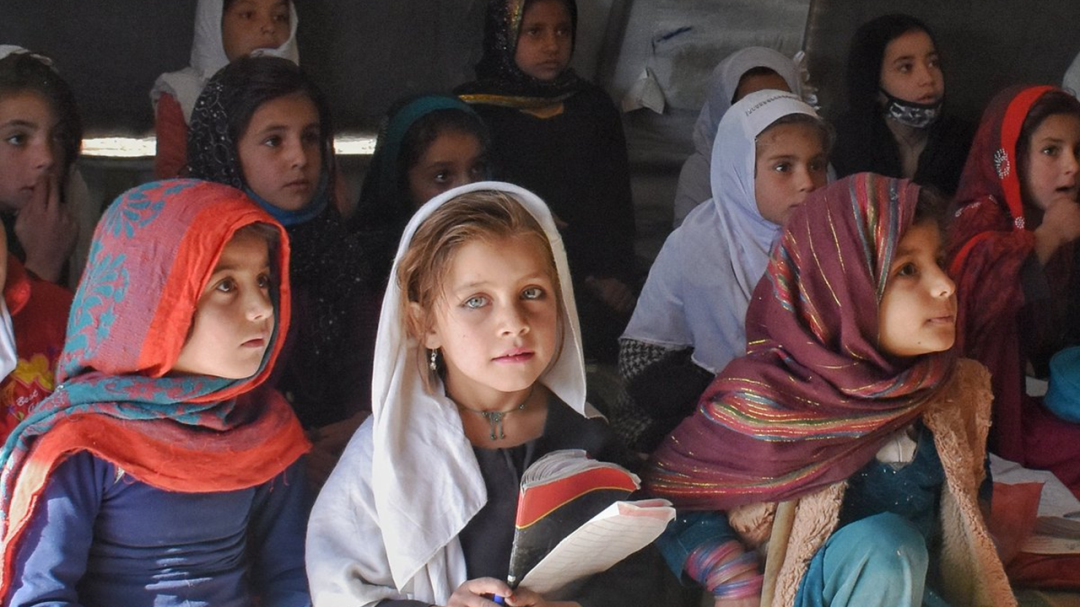The current situation in Afghanistan is once again extremely unpredictable and ambiguous with the Taliban takeover and the resignation of President Ashraf Ghani. Throughout history, Afghanistan has been a place of political turmoil since the Great Game of 19th Century, where the major powers Britain and Russia confronted one another in Afghanistan and aimed at expanding their empires based on their political and diplomatic gains.
The Taliban took hold of Afghanistan from 1996 to 2001, till the U.S and its allied forces intervened in Afghanistan under the ‘War Against Terrorism’ campaign to eradicate the global terrorist networks and secure the democracy of Afghanistan. As a result, the continuity of asymmetrical warfare in Afghanistan has emphasized its significance and the great power interests within its territory. Afghanistan has been a significantly strategic area which has offered geo-economic competition and attracted numerous global powers including the U.S, China, Russia, along with the regional powers such as Pakistan, India and Iran.
Keeping in context the prevailing nature of political affairs in Afghanistan, it can be comprehended that once again, the state is under the leaders who aim at prioritizing the security of their political, economic and strategic interests over the security and protection of individuals. In addition, in terms of the economy, Afghanistan may face massive economic recession, particularly since the local shops and markets have been closed down in major parts of the cities after the Taliban takeover. In terms of the societal conditions, the Taliban have once again led to an extreme insecure situation for the female segment of the society, which points out the fact that the females are unable to express themselves as per the rights embodied in the Constitution of Afghanistan and are under a serious threat. According to Mahbooba Seraj, the initiator of the Afghan Women’s Network, “the current condition in Afghanistan will put the country 200 years back”. This indicates the deteriorating situation for the Afghan citizens, particularly girls and women.
The continuity of asymmetrical warfare in Afghanistan has emphasized its significance and the great power interests within its territory
Hence, answering the question, History is indeed repeating itself after 20 years, with the local people of Afghanistan facing insecurity and human rights atrocities within the region due to the leaders replacing the throne of leadership from time to time and from one leader to the other, with little priority for the safety of the Afghan population. Yet, this time it may be different as the Taliban takeover will have major implications not only for Afghanistan but also for Pakistan and the rest of the region, leading to the transformation of geostrategic and geo-economic trends in South Asia. Similarly, with the rapid technological advancements, the Taliban have access to newest technology including cyber technology, which could further deteriorate the situation by posing challenges to the public in the current time.
Furthermore, the transformation in global politics and the strategic re-alignment has a negative impact on the whole South Asian region, where India and the U.S strategic partnership is on the rise at one hand while on the other hand, both Russia and China have a new great game in the South Asian strategic pursuits, referring to Afghanistan. Currently, according to the CNN, the U.S defense secretary claims to approve around 1000 U.S troops to Afghanistan to curb the worsening situation in the country. The Afghan state is the stronghold of the Taliban, with enhanced strategic communications operations and better public relations platforms. The Taliban are experts at propaganda and psychological warfare, which refers to the fact that they may be able to deceive the world about the progress of the Afghan state, only to bring back their establishment, which was observed before 2001.
Taliban takeover will have major implications not only for Afghanistan but also for Pakistan and the rest of the region
Nevertheless, there is nothing, but hope left for the security of the Afghan state and the wellbeing of the citizens of Afghanistan. It is only a matter of time till the new Taliban government is recognized by China, Pakistan, Russia and other major players of the region. As per the Taliban’s main negotiator, Mullah Abdul Ghani Baradar, Afghanistan will observe a better future and peaceful life where the Taliban will serve the nation according to their best standards. However, it is up to the Taliban whether they aim at bringing peace and stability in the country; continue maintaining the current status quo; or seek an alliance with the Global and Regional Powers for strengthening the political and strategic status of Afghanistan.

About The Author
Zalanda Wiqar Shah has completed her Bachelor’s Degree in International Relations at Quaid-I-Azam University, Islamabad, Pakistan. Her area of Interest is Human Rights and International Law, under the context of International Politics. She is also interested in the philosophy of history.
The views expressed in this article are solely those of the original author and do not necessarily reflect or represent the views of Rationale-47.

